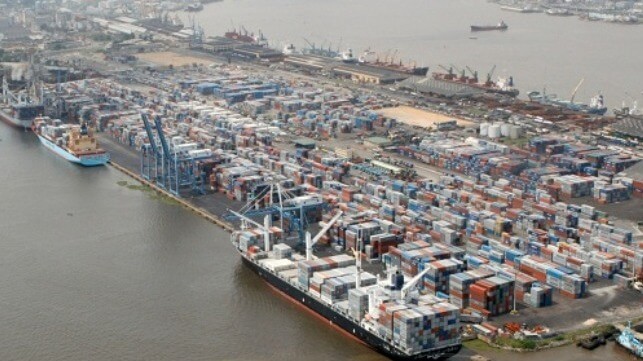National Strike Shutters Nigeria's Seaports Indefinitely

Nigeria's two largest labor unions have launched a nationwide strike, and port workers have joined in the walkout. Following a directive from the Nigeria Labour Congress, the Maritime Workers Union of Nigeria (MWUN) has closed the nation's seaports indefinitely.
"The Maritime Workers Union of Nigeria has directed its members in all ports nationwide, jetties, terminals, oil & gas platforms to effectively ensure the total compliance of the strike," said MWUN head of media John Kennedy Ikemefuna in a statement.
The walkout affects Lagos, Port Harcourt, Warri, Onne and Calabar, according to Nigerian paper Vanguard. The timeline for negotiations and reopening operations is not currently known.
Even if the port workers remained on the job, they might not have enough power to carry it out. The Transmission Company of Nigeria (TCN) said that striking workers from the National Labour Congress and the Trade Union Congress had turned off the electricity supply for tens of millions of people. According to TCN, union members entered power system control rooms and ejected the operators by force, leaving some employees injured and beaten. (The unions disputed this account and said that TCN had brought in members of the military to disrupt the strike.)
Nigeria's unions are demanding a 16-fold increase in the national minimum wage from the current level of $22 per month to $370 per month, along with a reduction in electrical power tariffs. Nigeria's government proposed doubling the monthly minimum wage to $49, but this was not satisfactory for union leadership.

that matters most
Get the latest maritime news delivered to your inbox daily.
NLC spokesperson Benson Upah told Voice of America that government economic policies have raised the cost of living, sparking a crisis for rank-and-file workers. "We do not know who the beneficiaries of these policies are, because we the workers are dying. Manufacturers are dying. Other entities are dying," he told VOA.
After the newly-formed government of President Bola Tinubu removed controls on the value of Nigeria's currency last year, its exchange rate fell by half. This means that it now costs Africa's most populous country twice as much to purchase much-needed imports. Security-related disruptions to the Nigerian farming sector have also raised the price of food staples, and a government-mandated end to fuel subsidies has raised the retail cost of energy. A surging inflation rate of 30 percent has eroded the purchasing power of everyday workers, prompting unions to press for more support. "We are crying because government policies have impoverished us," the two unions said in a joint statement Monday.
